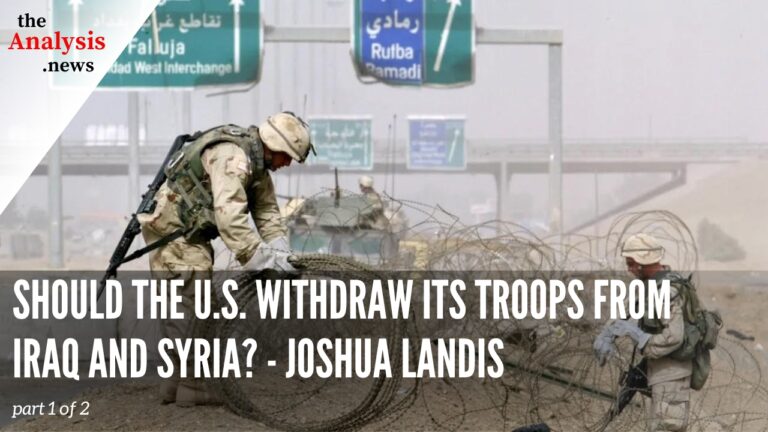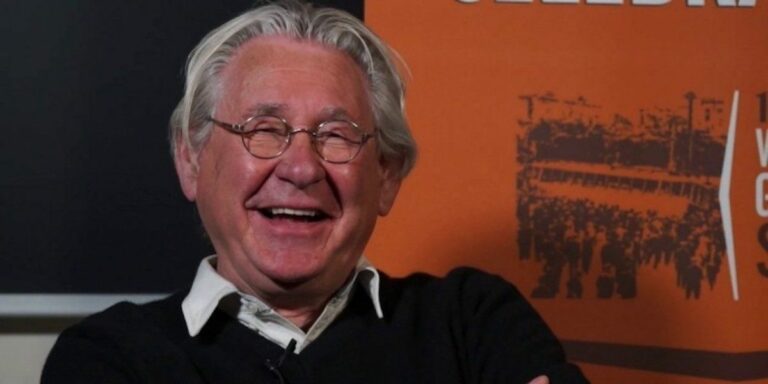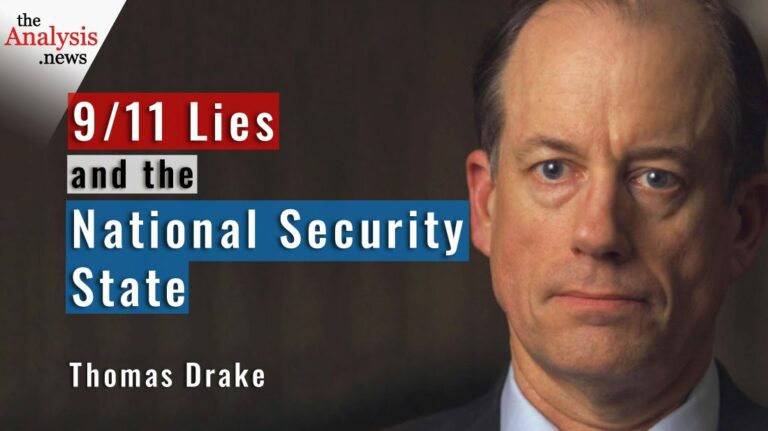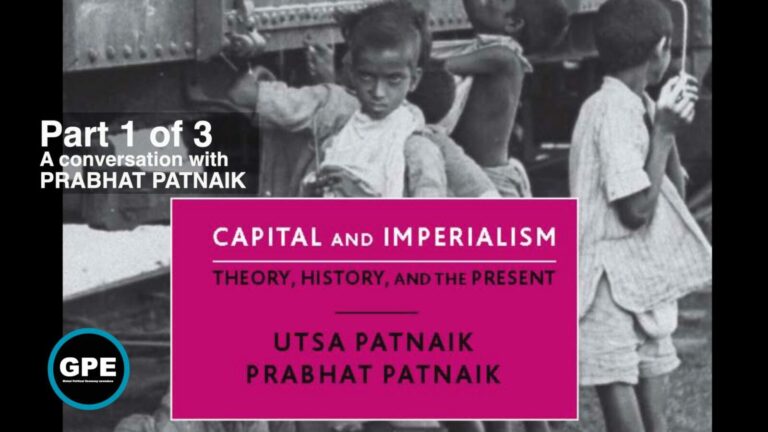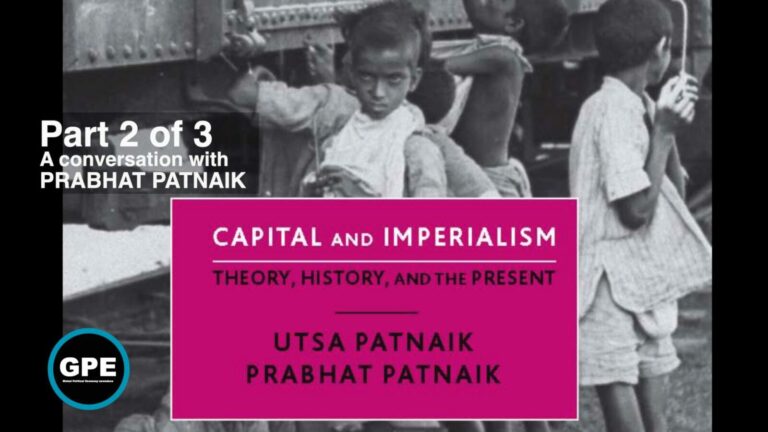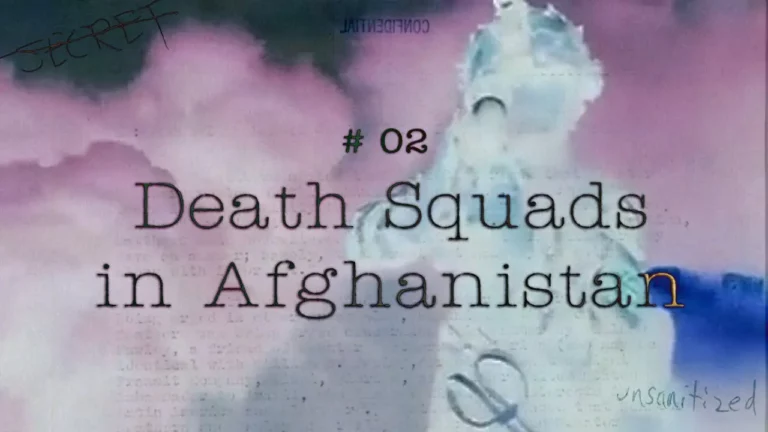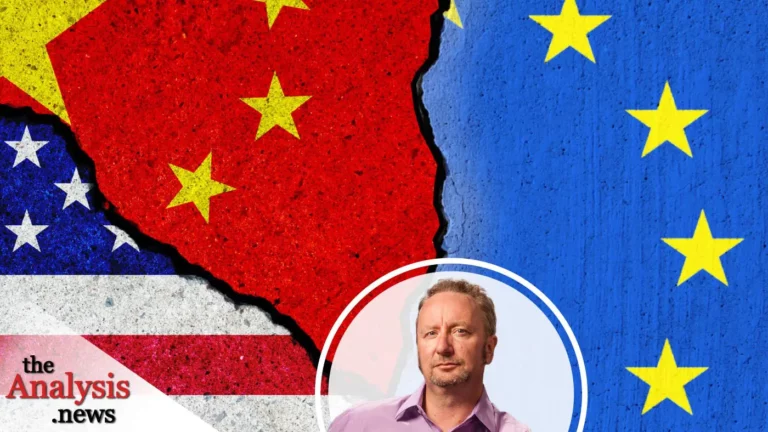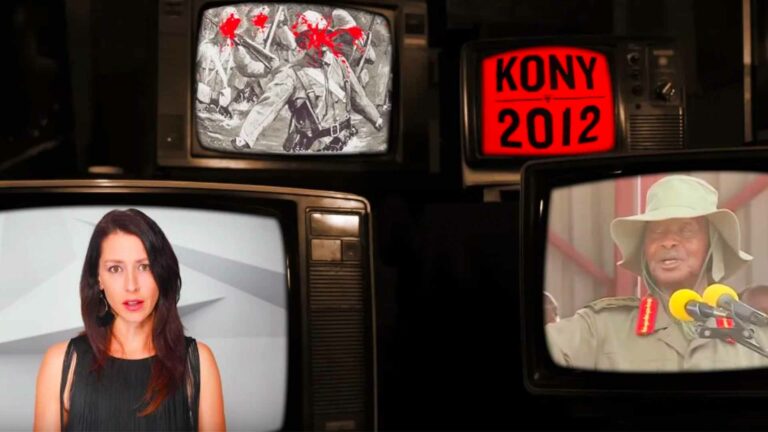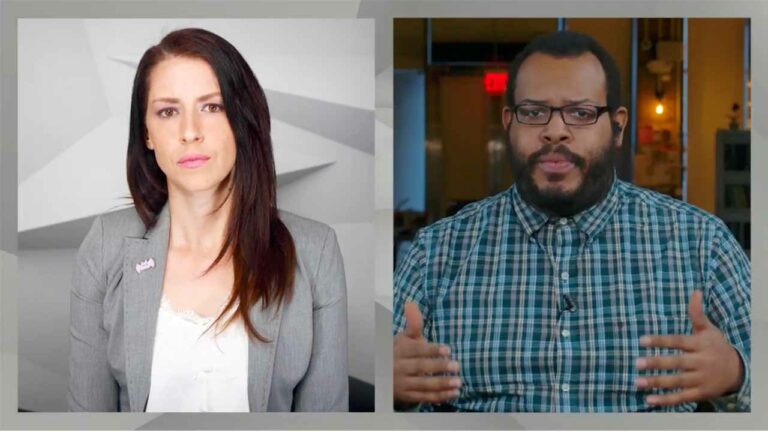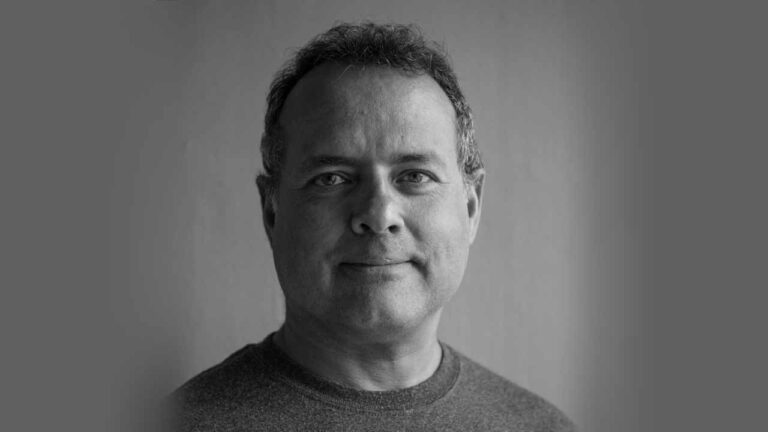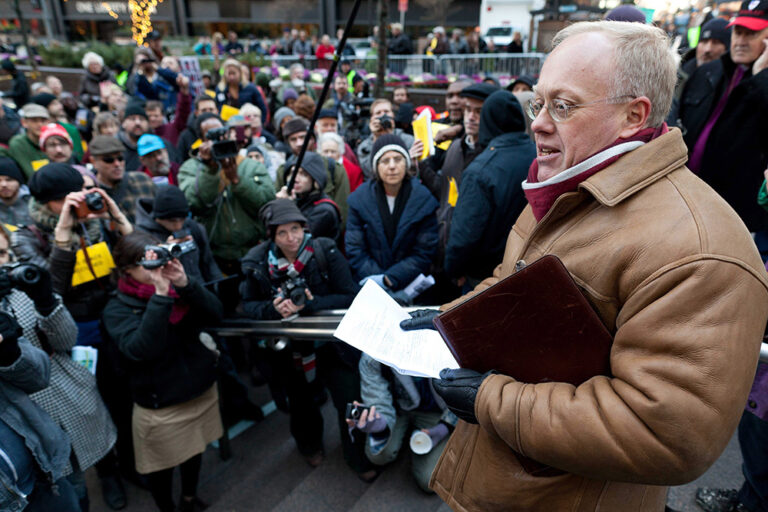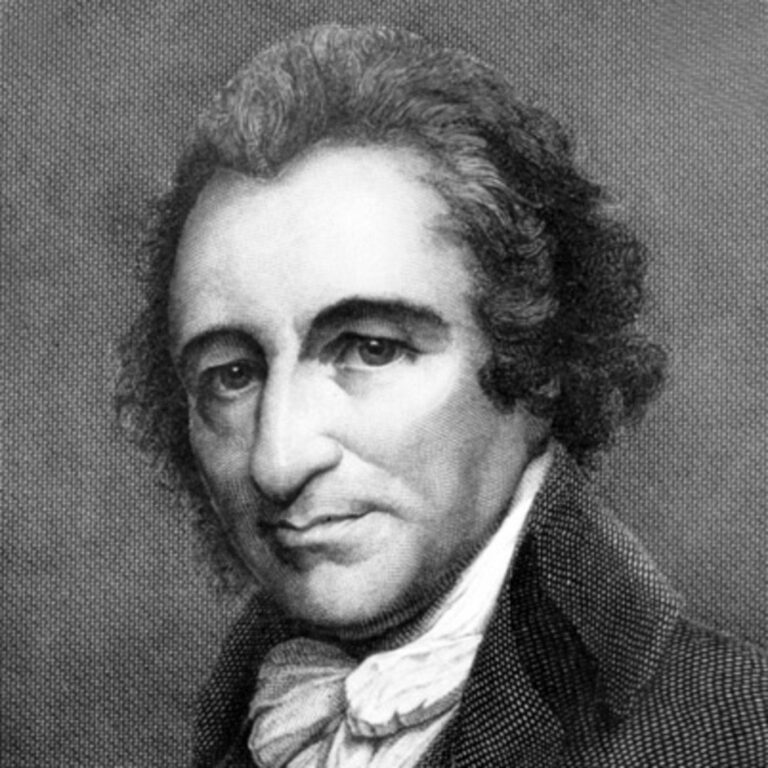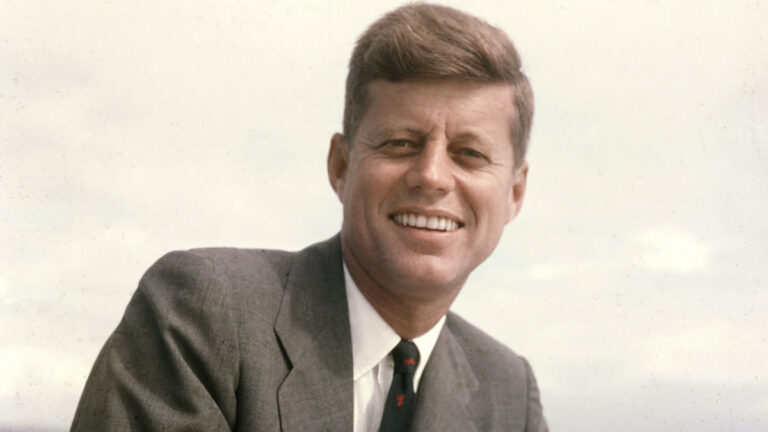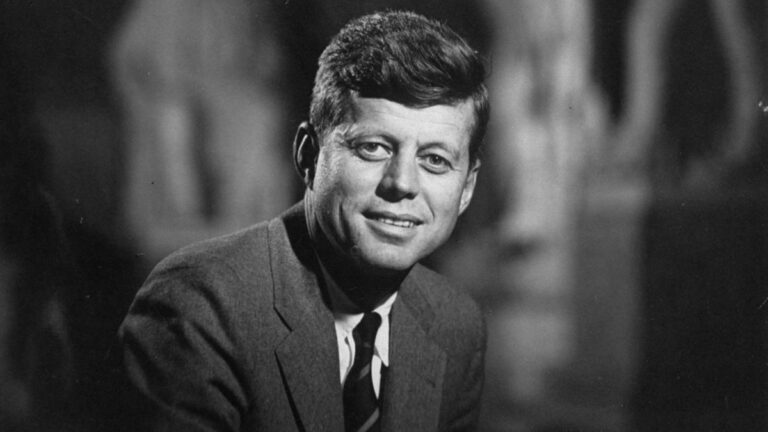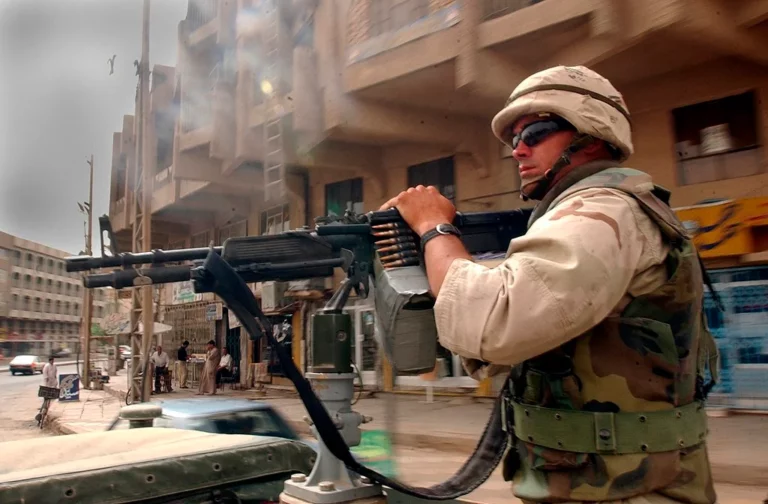Should the U.S. Withdraw Its Troops from Iraq and Syria? – Joshua Landis (part 1/2)
Joshua Landis is a historian and Sandra Mackey Chair and Director of the Center for Middle East Studies at the University of Oklahoma, as well as a Non-Resident Fellow at the Quincy Institute for Responsible Statecraft. Landis presents the case for an immediate U.S. troop withdrawal in the Middle East, arguing that many civil society groups as well as militant groups in Iraq are strongly opposed to the U.S.’ military presence there. This is Part 1 of 2.
